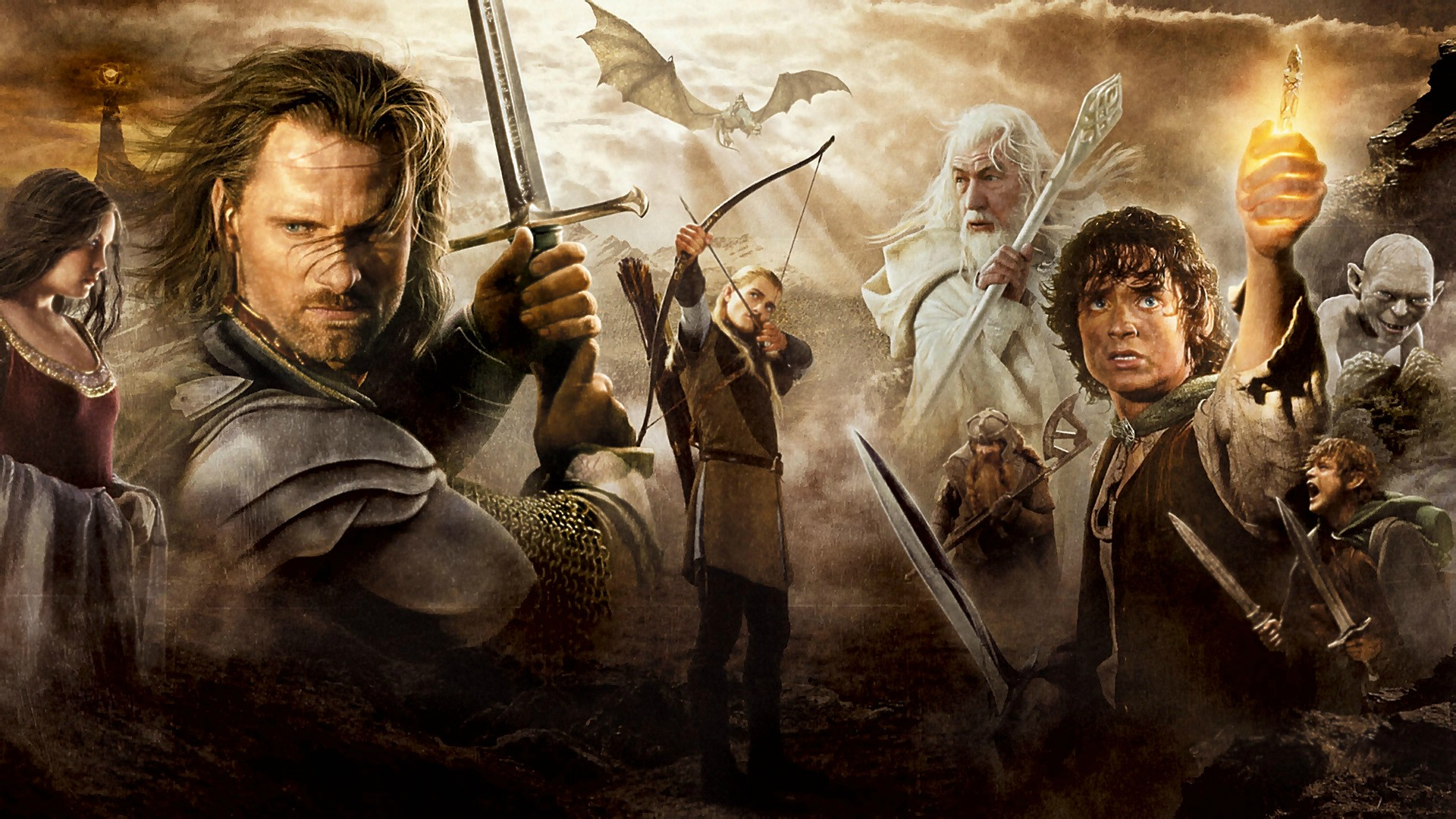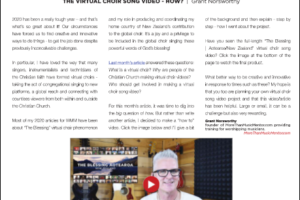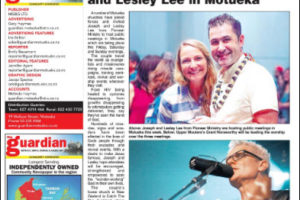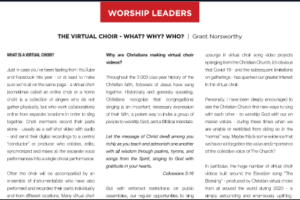Take this link to read Grant’s article as featured in the November issue of Worship…

THE GREATEST STORY OF ALL
By Grant Norsworthy
J.R.R. Tolkien is best known as the author of two GREAT stories: The Hobbit and The Lord of the Rings. Both stories are incredibly powerful and wildly popular. I wish I could say that I’ve read both numerous times, but I can’t. Like most people (I guess), I had to settle for the Peter Jackson directed screen adaptations.
I’m a fan of both stories, but I do find The Lord of the Rings to be far more engaging. What about you? If you’re like me and prefer The Lord of the Rings, we are not alone! The Hobbit has sold about 100 million copies, while The Lord of the Rings has sold in excess of 150 million. The Lord of the Rings movies grossed over $10 billion at the box office, while The Hobbit trilogy gathered less than $3 billion. All impressive numbers, but the difference is huge.
Both of these incredible stories – like any good story – describe a conflict and its resolution: An obstacle that must be, and is overcome. But while The Hobbit is about some greedy dwarves and how they get their treasure back from a dragon, The Lord of the Rings depicts the incarnation of absolute evil in Dark Lord Sauron and the war fought by the good beings whom he would seek to destroy and rule over. It’s the supreme struggle between good and evil! What could be more compelling than that?
Generally speaking with stories, the bigger and more overwhelming the obstacle, the sweeter triumph over that obstacle tastes. The more difficult the conflict, the more satisfying the resolution. Stories with BIG conflict and a correspondingly BIG resolution will make a BIG impact. They engage us like nothing else can.
The story of a person from an uneducated, deprived background earning a Ph.D. is more compelling than a 5th grader moving from a B to an A in mathematics. The story of escape from a Nazi concentration camp is more compelling than escape from a large, wet, brown paper bag.
The conflict that is resolved is bigger in The Lord of the Rings than in The Hobbit. That’s why it connects more deeply and more widely. But, to me, there’s a story far more important and powerful than even The Lord of the Rings!
I believe the greatest and most important story of all is of God and his created human beings – you and me – all of us. It’s the story described in The Bible. It’s the ultimate struggle of God’s goodness versus the evil of Satan – the devil. And it’s not just some made up story! You and I are characters in this epic, real-life, unfinished story.
In perhaps its simplest “elevator pitch” version, this great story’s central theme is worship. The plot? Having been rejected by His own creation in the Garden, God summons his beloved people to return to Him – to worship Him above anything else. He knows this is the only way that people will be able to truly live as we were created to live.
As God spoke through the first of His Ten Commandments:
“You shall have no other gods before me.”
Exodus 20:3
But forces of evil stand in defiance against God and use all manner of sinister deception, power and influence to entice people to worship anything but God.
The story has always been about worship: The worship of God or the worship of something – anything – else. From the dawn of time to this very moment, there has always been a monumental conflict for humankind between the worship of God or Satan’s counterfeit, idol-gods.
But where’s the conflict and resolution in the Christian “worship” of today? Where’s the irrepressible attraction of the greatest story if “worship” becomes something that happens only once a week inside a church building designated by very specific, semi-passive activities?
With the imperative attraction of conflict and resolution removed from what we call “worship”, is it any wonder that many people turn away – leave The Church – or perhaps sit inactive and passive in a pew – unengaged, unmoved and uninspired?
And so, let’s expand our view of worship. Let’s move more deeply into the overwhelming, monumental conflict that is raging over our worship.
As we should have learned in school, the elements of story are:
- Setting
- Characters
- Plot
- Conflict
- Resolution
The setting of worship is not just inside a church building. The war rages anywhere and everywhere we find ourselves.
We are all characters in this great story – not just the people with microphones on the platform, or in the stories we hear from The Bible.
The plot of worship is so much more than what happens during that hour or two on a Sunday morning. The plot is deep and wide and rich and woven through every facet of our lives.
And there is conflict. And there will be resolution to this epic, life and death – eternal life and eternal death – struggle of worship.
Therefore brothers, in view of God’s great mercy, offer yourselves as a living sacrifice, holy and acceptable to God, and let that be your spiritual act of worship.
Romans 12:1
I wrote this article as a guest blog for Chuck Neighbors of Master’s Image Production. It was published on their website on February 24, 2017.


